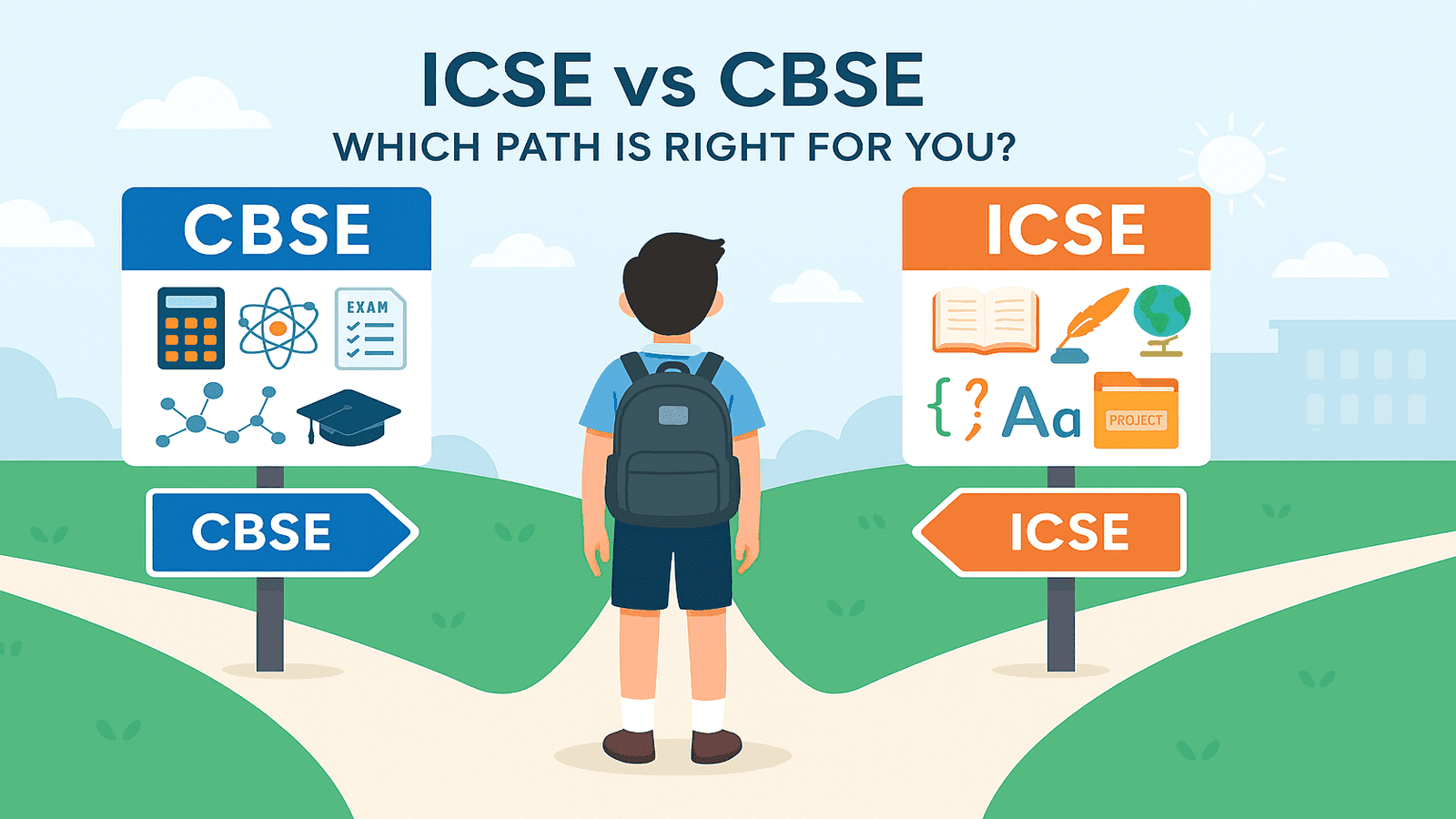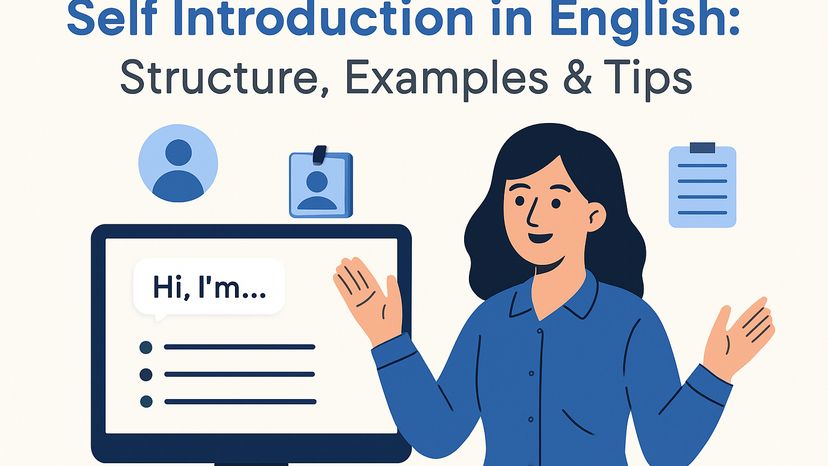Choosing a school board isn’t just a paperwork task; it can shape the way a student learns, thinks, and even plans a career. Two boards dominate that choice in India: ICSE and CBSE. Parents sometimes feel overwhelmed by the flood of opinions about Which is better CBSE or ICSE, but a clear decision comes down to facts. What do the initials actually mean? How does each board teach? And, most importantly, CBSE or ICSE, which is better for the future of your child? In this guide, we unpack the essentials—explaining the CBSE full form, the ICSE full form, and the practical difference between CBSE and ICSE—so you can pick the path that truly matches your child’s goals. (For a broader look that also covers IB and Cambridge, see our detailed comparison here: CBSE vs CISCE vs IB vs Cambridge.)
Understanding the Two Boards
What does CBSE stand for?
The CBSE full form is Central Board of Secondary Education. It’s a national body run by the Government of India that keeps the same syllabus in every affiliated school. Because of that uniformity, CBSE is the first pick for families who move cities often. Lessons revolve around Maths, Science, and reasoning skills—subjects that feed straight into entrance tests such as JEE, NEET, and CUET. If you’re already planning subject choices for Class 11, you might like our guide on Optional Subjects in Class 11 CBSE.
What exactly is ICSE?
The ICSE full form is Indian Certificate of Secondary Education. The examination is organised by CISCE (Council for the Indian School Certificate Examinations). The ICSE board full form typically refers to the Grade 10 public exam. ICSE board schools are known for a broad syllabus, substantial lab work, and a deep dive into English language and literature. That blend helps students aiming at humanities, creative fields, or universities abroad where written communication matters.
Key Areas Where They Differ
Curriculum depth
At first glance, the difference between CBSE and ICSE looks simple: CBSE keeps topics compact; ICSE casts a wider net. In practice, CBSE lines up chapters so core theories come first—handy for quick revision before competitive exams. ICSE, in contrast, pairs every theory lesson with projects, lab activities, or essays, nurturing applied learning and critical analysis.
Exam and grading style
CBSE papers rely heavily on objective or short-answer formats, letting students cover the entire course in a single sitting. ICSE board assessments mix practicals, project files, and descriptive questions. Marks come not only from a final paper but from term-long coursework, so steady effort is rewarded.
Language focus
English is present in both boards, but ICSE treats it as a signature strength. Extra novels, grammar drills, and debate sessions build vocabulary and confidence. That rigorous practice can stand out for students applying to global universities or liberal-arts programmes.
Career alignment
If a student’s dream is engineering, medicine, or civil service, CBSE’s streamlined content aligns neatly with national entrance syllabi. Those looking at media, law, design, or foreign degrees might find the broader Indian Certificate of Secondary Education better for writing skill and analytical thinking.
CBSE or ICSE—Which Is Better for the Future?
The real question isn’t simply “which board is best CBSE or ICSE”; it’s “CBSE or ICSE, which is better for the future” of your child.
Choose CBSE if:
- Consistency across multiple cities is crucial.
- Quick, concept-based revision is a priority.
- Entrance-exam scores will steer university admission.
Pick ICSE if:
- Strong English and project skills are prized.
- A detailed, application-heavy syllabus excites the student.
- Foreign universities or liberal-arts careers sit on the horizon.
Neither board is automatically tougher; they simply measure success in different ways. If you want professional support choosing—or switching—boards, book a session with our expert advisors at Infigon Futures Counselling. Schools and coaching institutes can also partner with us via Infigon Futures Institutions to integrate customised academic planning tools.
Snapshot Comparison
| Aspect | CBSE | ICSE |
| Core Emphasis | Maths, Science, Reasoning | English, Applied Science, Humanities |
| Assessment | One main exam, objective focus | Exam + internal projects & practicals |
| Mobility | Schools nationwide | Urban clusters, fewer rural options |
| Best suited for | JEE/ NEET aspirants | Creative or global-study paths |
FAQs
Which board is more transferable if my family relocates often?
CBSE, thanks to its wide network and identical syllabus, lets a child slot into a new school mid-year with minimal catch-up.
Will ICSE help with applications to universities abroad?
Yes. Admissions officers overseas appreciate the ICSE board for its rigorous English standards and continuous assessment model.
Are CBSE students stronger in competitive exams?
They can be, because CBSE chapters mirror many entrance-exam topics. ICSE students who practise objective questions regularly do just as well, especially if they use structured resources like our Competitive Exams Guide for Classes 8–10.
Is scoring 90 percent easier in CBSE than ICSE?
Generally, CBSE’s objective papers make high marks slightly more attainable. ICSE marks rely on written expression and projects, so the workload is heavier but builds deeper understanding.
Can a student switch from ICSE to CBSE in Class 11?
Yes. Moving from the broader ICSE syllabus to CBSE usually means some overlap, but the reverse switch (CBSE → ICSE) often calls for extra reading to cover missed project skills. A personalised transition plan from our counsellors at Infigon Futures Counselling can smooth the change.











